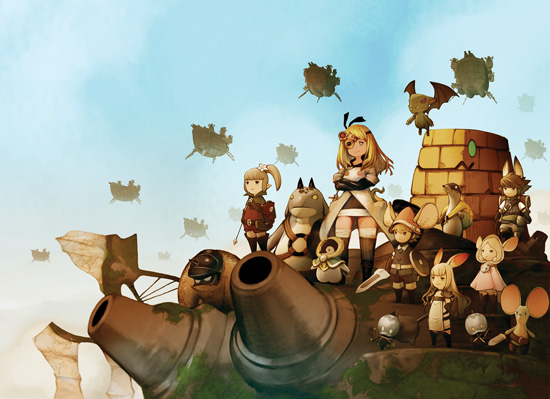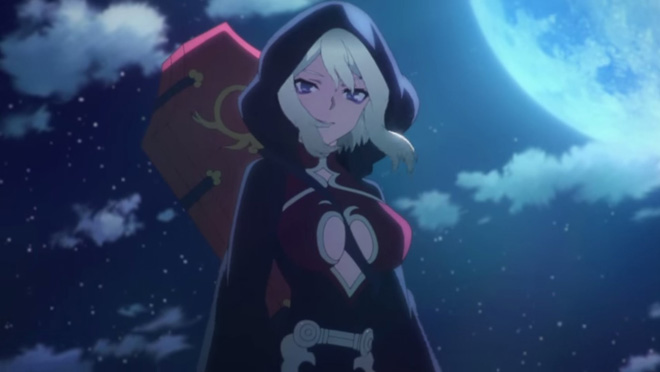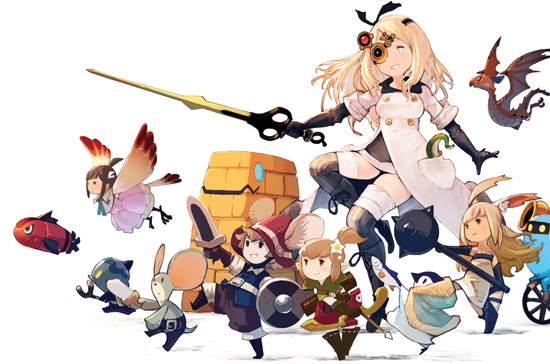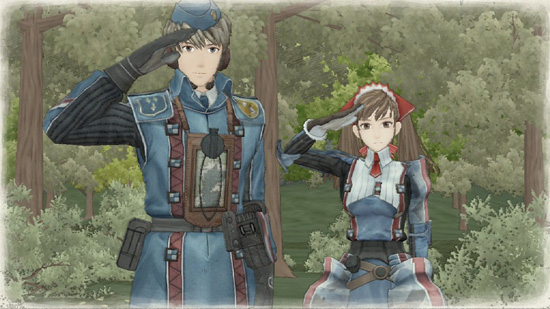
Hitoshi Sakimoto is a well-known composer in the video game world, with a generations-spanning career that includes games like Final Fantasy Tactics, Final Fantasy XII, Valkyria Chronicles, and many more. We caught up with him at the Tokyo offices of BlazeGames, where he was most recently working on music for mobile RPG Battle Champs (known in Japan as Little Noah). Dig in for a look back on his history of composing, thoughts on making music for anime (he worked on Romeo x Juliet and Chaos Dragon, among others), and more.
Before getting to the music of Battle Champs, I’d like to go back in time a bit. You may know this, but there are quite a few Americans who are fans of your early work on games like Gauntlet IV, Devilish, Verytex, and so on. From what I understand, you created the Terpsichorean engine around that time.
Oh yeah, it’s a program. It’s a driver, for music and sound effects and so on.
Could you elaborate a bit on how that came about, what drove you to create that for your music, and what the process was like?
I started off as a programmer for games; at that point most people created games by themselves, not with a group of people. The first time I made a game as a group was when I was in high school, and I was in charge of the hardware side of the game; for the images and sound, as well as the actual input. Because of that I made the sound driver. On that team, I was the only person who was able to make music, so I was in charge of the music creation.

From that early era, do you have a favorite sound chip, for example like the Yamaha YM2612?
I don’t really want to play around with them now, but I like older sounds because they have a lot of personality. The FM chip makes a very particular sound that I don’t think could be made with any other instrument now. Back in the day I used to play around with it quite a lot, so much that I could play 16 synths just on that machine.
Are there any soundtracks in particular you have fond memories of working on?
Every project needs a new mind-set, and that new mindset is always fun. There’s a drinking party for each new project, so that’s always fun, too. I worked on Final Fantasy XII, and before I joined they had been working on it for five years. After I joined, they kept on going for about six or seven years, as well, and I always thought, “one day there’s going to be an end.” But it just kept going. So when I joined the project and they had a party, some of the people that were related to that project had been involved for over 10 years. There was one table of just people who had been working on the project for a long, long time, and they were drinking quite a lot. So I joined that table and we started drinking tequila straight from the bottle. So that was a good memory.

In the early days you had to do more with less to make memorable game music, but as the years went on you could essentially have full orchestra sound. Did you find it easy to transition from the limitations of the early days of game composing to where we are today?
In the past when the sound chips were really small, it was a lot of fun to create the sounds. Back then there were a lot of limitations because of the technology, but because of that you could really push the boundaries of what you could do within those limitations. Doing that was a lot of fun. But my work is not to push the boundaries, it’s to move people’s emotions. Before you go into making music you have to think about what kind of emotions you want to sway people with. But even to this day, whatever technology is out there, there are still limitations, so in that sense things haven’t really changed that much.
I’ve read that you’re a YMO fan. Are they still a big influence on your music, and were there any other specific influences on the music for Battle Champs?
Initially I was very interested in techno music, progressive rock, and jazz fusion. I’m also very interested in tribal music, so I try to purchase a lot of tribal music CDs, and I’ve actually been to a couple places where they play tribal music. In Battle Champs we do use a lot of tribal music, so that’s one area in which I was influenced. I really like techno music, but I don’t get much work in relation to it.

Maybe more fitting for the shooting games. Which brings me to whether you find it easier to get inspiration for certain genres, like for RPGs or shmups (shoot ‘em ups). Do you have a preference for any particular type of game?
Depending on the genre, the type of music you get is pretty decided. If it’s a shooting game it has a lot of rhythm to it, if it’s an RPG it’s more open. I get a lot of offers for work like that. But at this point I’m kind of bored of doing the norm, and I’d like to do something that’s more mismatching.
What differences have you found in the process of composing for anime and composing for games?
For anime they usually have one meeting, and then, based on that one meeting, I go back and make the music. Once it’s finalized I send it over, and if they don’t like it they just don’t use it. So there’s no conversation of, “Can you change this or edit that,” or any minor edits or feedback at all for anime. I haven’t had as much work with anime, though, so I don’t know if that’s the norm.
I’ll get in trouble if I don’t let you know that you have a lot of American fans that admire your soundtrack to the Game Boy game Bubble Ghost.
Oh really?!
Yeah, I wanted to mention that because it’s kind of a cult favorite among many people.
I’m surprised. I did this job a lot when I was a student, but the first job I had as a professional was Bubble Ghost. The music itself was only 2kb.

